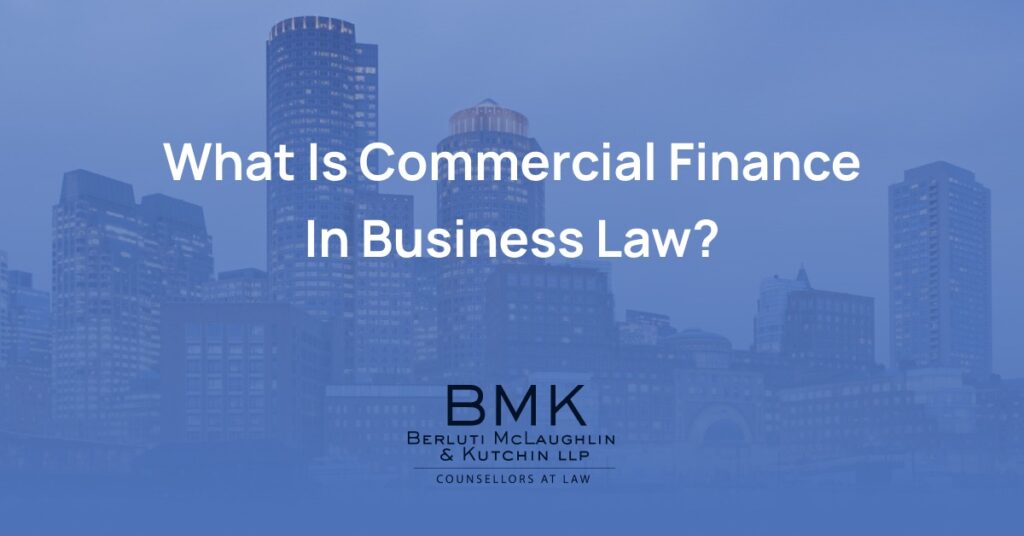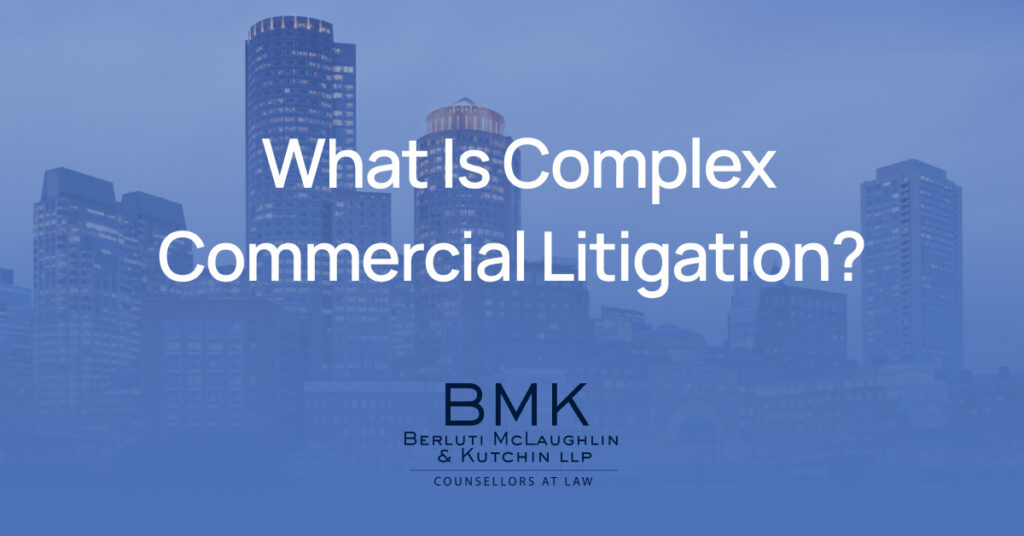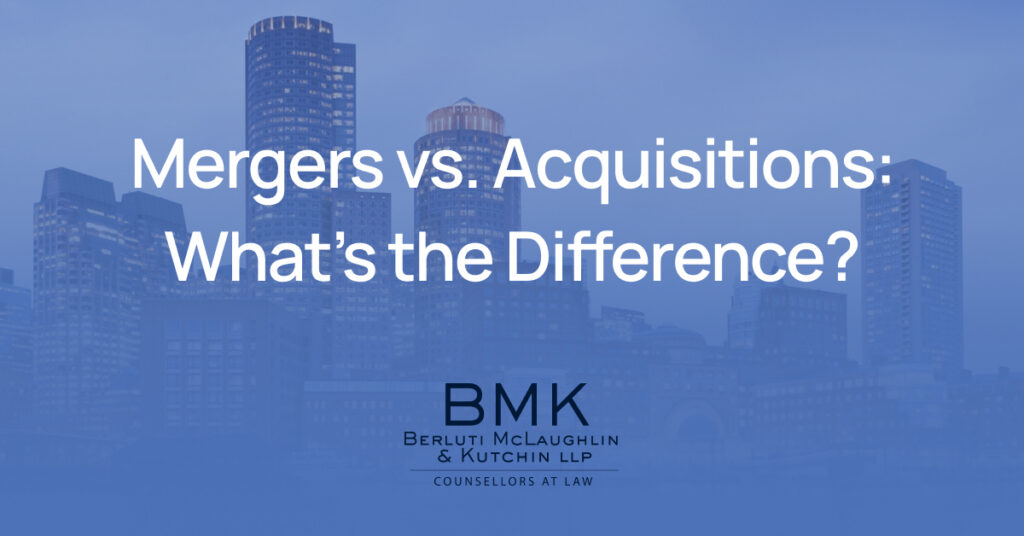
Businesses rely on commercial finance to fund projects, purchase equipment, and manage day-to-day operations. But what is commercial finance? It involves financial institutions lending funds to businesses, enabling them to achieve goals like growth, operational stability, or acquiring new entities.
At BMK, we understand the complexities of commercial finance. We provide legal services to lenders and borrowers alike, helping our clients reach their goals through practical advice, efficient solutions, and effective guidance. Reach out today if you’d like to know the answers to questions like, What is commercial lending, and how can I benefit from it?
Key Takeaways
- Commercial finance provides businesses with capital through loans, lines of credit, and financing tools to fund operations, expansions, acquisitions, and construction projects.
- Loan types include term loans, equipment loans, credit lines, construction loans, and acquisition financing, each designed for specific business needs.
- Federal and Massachusetts regulations ensure transparency and fairness, requiring lenders to disclose terms, prevent fraud, and follow licensing rules.
- Commercial finance lawyers play a vital role by drafting and reviewing contracts, negotiating terms, ensuring compliance, and resolving disputes for lenders and borrowers.
What Is Commercial Finance?
Finance ensures business stability and growth by managing funds, budgeting, forecasting, and analyzing performance. It guides decisions, allocates resources, manages risks, and increases investment returns.
The commercial finance industry encompasses loans and lines of credit that businesses use to support daily operations and drive growth. Key participants in this industry include lenders—such as banks and credit unions—and business borrowers of various sizes.
Commercial legal finance allows plaintiffs to pursue litigation without upfront costs. A third party funds the case in exchange for a share of the recovery. This unlocks access to justice and discourages premature settlements for less than fair value.
Well-executed commercial finance agreements benefit businesses and lenders alike. Lenders benefit through interest payments, and businesses benefit by gaining access to funds that open new opportunities for growth and stability.
However, commercial finance also comes with potential challenges, such as navigating complex agreements and ensuring compliance with financial regulations. To mitigate risks and create effective, legally enforceable agreements, businesses and lenders often require help from commercial finance lawyers.
Types of Commercial Bank Loans
Different types of commercial bank loans meet different business needs. Selecting the best option for your company requires understanding each loan type’s unique purposes, benefits, and potential drawbacks.
Term Loans
A term loan is one of the most common bank commercial loans. In a term loan, a business receives a specific amount and repays it over a fixed period. The lender charges interest, with rates that vary according to the loan’s purpose and the repayment period’s length.
Equipment Loans
Equipment loans finance the purchase of machinery, vehicles, or other essential tools and equipment. The equipment often serves as collateral, and businesses may benefit from lower upfront costs, flexible terms, and potential tax advantages like the ability to depreciate or amortize the purchase.
Lines of Credit
Lines of credit allow businesses to withdraw money as needed up to a predetermined limit. The business pays interest only on the amount withdrawn. Lines of credit may enable businesses to manage cash flow, cover unexpected expenses, or fund short-term projects.
Capital call lines of credit are a special type of credit line. Also known as subscription lines, they involve a private equity firm using capital from limited partners to provide funds before the business receives capital contributions.
Construction Loans
Construction loans finance real estate and building projects. These loans support commercial real estate development, renovations, and infrastructure projects.
Acquisition Financing
Acquisition financing provides businesses with the capital needed for mergers, acquisitions, or market expansion. Because of its complexity, acquisition financing often involves significant negotiation and careful planning.
Commercial Finance Regulations
State and federal laws regulate commercial finance in the United States. These laws require businesses and financial institutions to operate transparently and fairly while avoiding harm to borrowers and consumers.
Federal Regulations
Commercial finance often crosses state lines, so the U.S. government has established federal regulations that require lenders to:
- Disclose information about lending practices and loan terms, including interest rates, fees, and other costs;
- Implement measures to help the government detect and prevent financial crimes, including maintaining records of transactions and filing reports to help track suspicious activity;
- Follow limitations on debt collection methods; and
- Guarantee protections for borrower investments.
Several federal agencies may oversee commercial finance transactions, including the Federal Deposit Insurance Corporation (FDIC) and other groups that regulate banks, credit unions, securities, and financial crimes.
Massachusetts Regulations
In Massachusetts, the Division of Banks (DOB) regulates the commercial lending activities of lenders, brokers, and other financial entities. Like federal law, Massachusetts law focuses on ensuring transparency and fairness in lending. Massachusetts law regulates:
- Interest rates;
- Credit transactions, including loans and lines of credit provided to businesses;
- How lenders and debt collectors may collect debts;
- Fairness in lender practices, including protecting borrowers from fraud and misrepresentation; and
- Security interests.
Massachusetts also requires many lenders to obtain a finance company license before lending in the state.
The Role of Commercial Finance Lawyers
Commercial finance lawyers provide support throughout the lending and borrowing processes. They ensure transactions follow the law and benefit their clients.
Commercial finance lawyers help clients by:
- Drafting and reviewing contracts—creating and reviewing loan agreements that address terms like interest rates, repayment schedules, and other requirements;
- Negotiating agreements—providing guidance on how to avoid disputes and advocating for clients in negotiations related to loan terms;
- Ensuring regulatory compliance—monitoring regulatory changes and helping businesses navigate applicable laws, avoid penalties, and maintain good standing with financial institutions; and
- Resolving disputes—mediating conflicts and, when necessary, representing clients in court, handling matters like breaches of contract, discrepancies in loan terms, and allegations of fraud.
Commercial finance attorneys guide lenders and borrowers through smooth transactions, protecting clients from potential risks and providing invaluable services in complex financial dealings.
Why BMK?
BMK combines technical knowledge with dedicated service from attorneys who understand the nuances of commercial finance. Whether you are a financial institution that needs assistance with lending or a business owner in need of financing, we are here to guide you. Contact us today to learn more about how we can help you.
Resources:
Massachusetts General Laws Ch. 106, Uniform Commercial Code, link.
FDIC, Chronology of Selected Banking Laws, link.
FDIC, Commercial & Industrial Lending, link.
FDIC, Commercial Real Estate Lending, link.
Federal Reserve Board, About the Fed, link.
Federal Trade Commission (FTC), Bureau of Consumer Protection, link.
Financial Crimes Enforcement Network (FinCEN), What We Do, link.
Internal Revenue Service (IRS), Instructions for Form 4562 (2023): Depreciation and Amortization (Including Information on Listed Property), link.
Massachusetts.gov, Division of Banks (DOB), link.
Massachusetts.gov, Apply for a finance company license, link.
Office of the Comptroller of the Currency (OCC), Who We Are, link.



